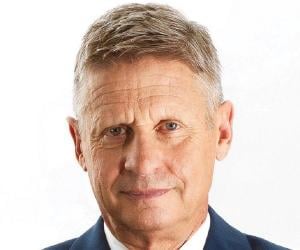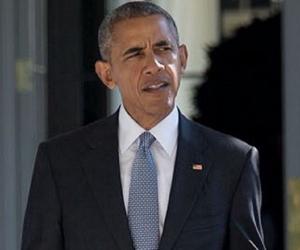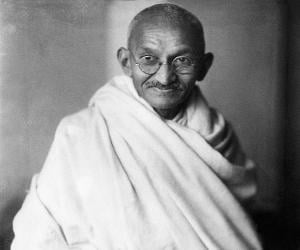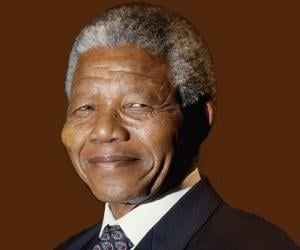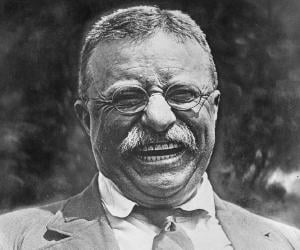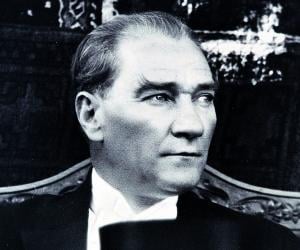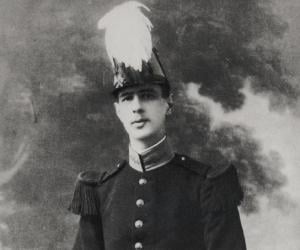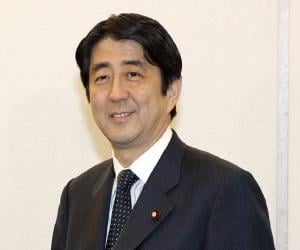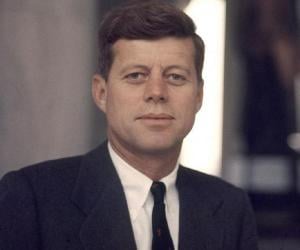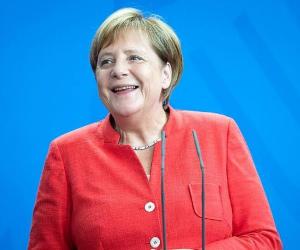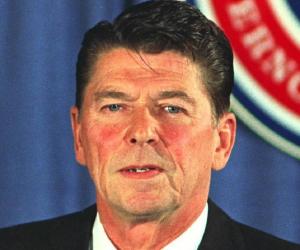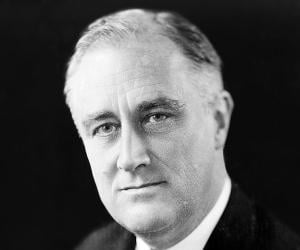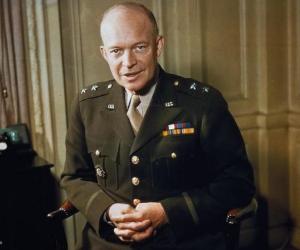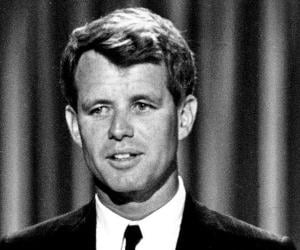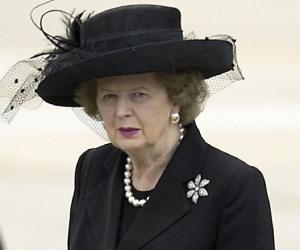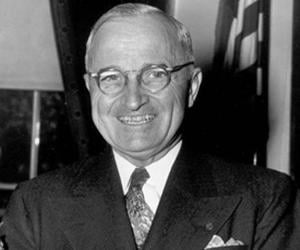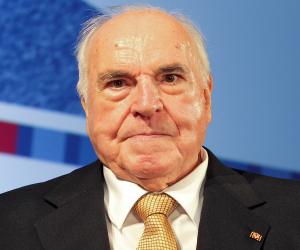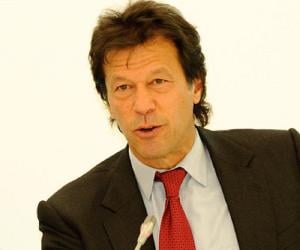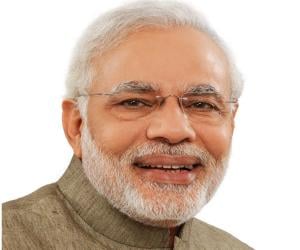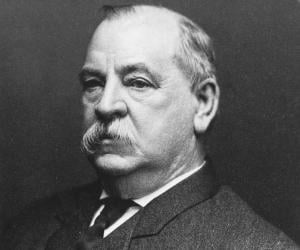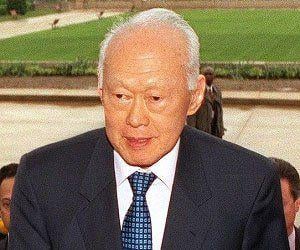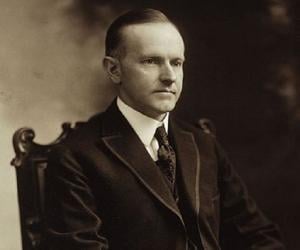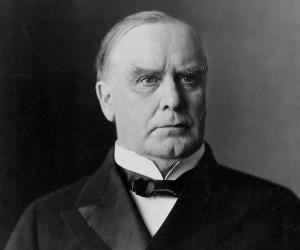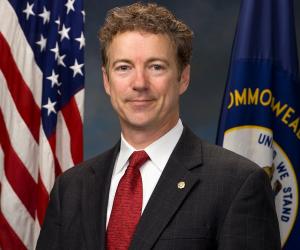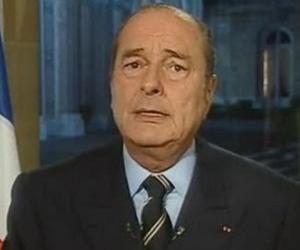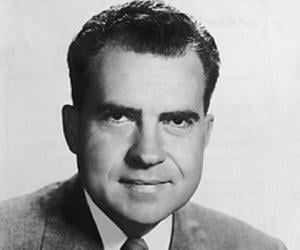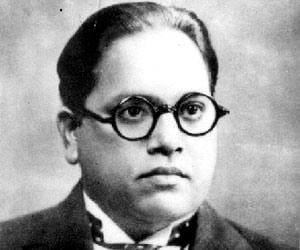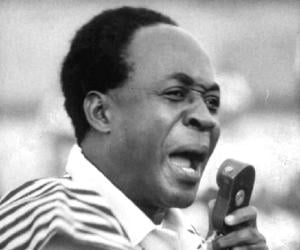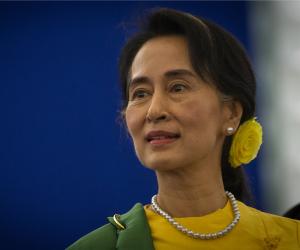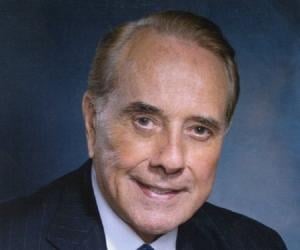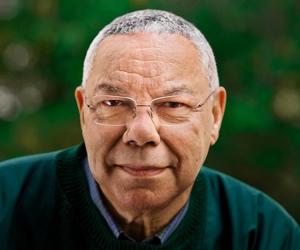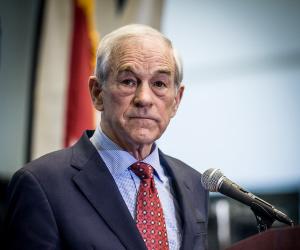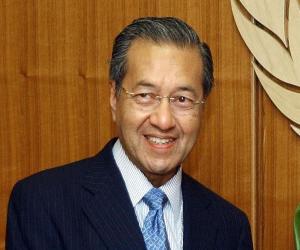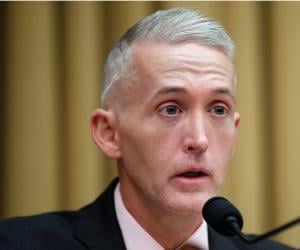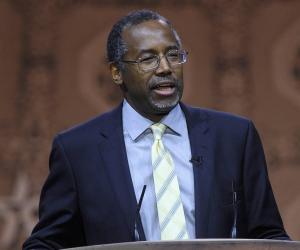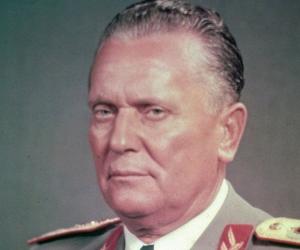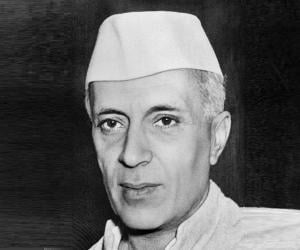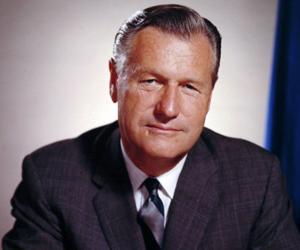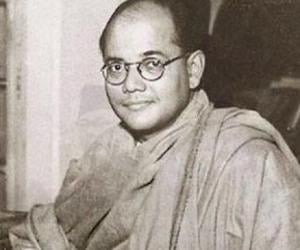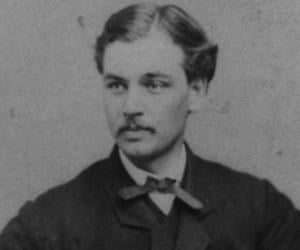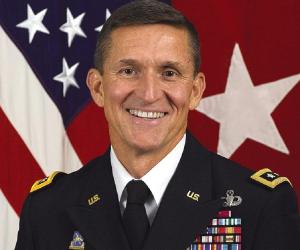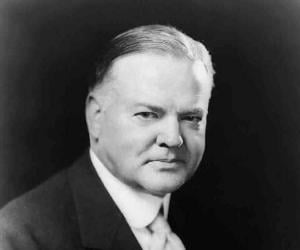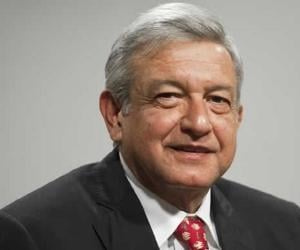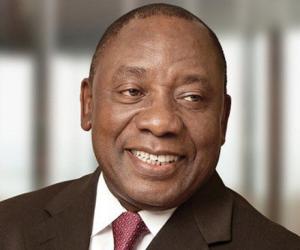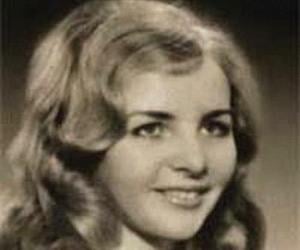Former President of the United States, Barack Obama, has the distinction of being the first African-American president of the nation. A civil rights attorney and an academic, he has been credited with bringing about a significant improvement in America’s reputation abroad. His efforts to strengthen international diplomacy was recognized with the 2009 Nobel Peace Prize.
An Indian lawyer and anti-colonial nationalist, Mahatma Gandhi was a major figure in India’s fight for independence from British rule. He is renowned for his employment of non-violent resistance and civil disobedience methods. Despite his popularity, he had numerous detractors as well and was assassinated in 1948. He is widely considered the Father of the Nation in India.
A leader in the civil rights movement in the mid-twentieth century, Martin Luther King Jr. is best remembered for advancing civil rights through nonviolence and civil disobedience. A man of Christian faith who was inspired by Indian freedom fighter Mahatma Gandhi’s nonviolent activism, he was honored with the Nobel Peace Prize for fighting racial inequality.
The 26th president of the United States, Theodore Roosevelt is generally ranked as one of the five best presidents of the country. A man of many talents, he was a politician, conservationist, naturalist, and writer. He supported Progressive Era policies in the early 20th century and championed his "Square Deal" domestic policies.
Charles de Gaulle was a French statesman and army officer. Charles de Gaulle fought against Nazi Germany in the Second World War by leading the Free French Forces. He also worked towards re-establishing democracy in France. He founded the Fifth Republic, France's current republican system, and rewrote the Constitution of France. He then served as the president of France.
Shinzō Abe was a Japanese politician who became the longest-serving prime minister in the history of Japan after serving as prime minister of Japan from 2006 to 2007 and then from 2012 to 2020. Aged 52 at the time of assuming office as the prime minister, Abe was also the youngest Japanese post-war prime minister.
The 35th President of the United States, John F Kennedy was a charismatic leader who, during his tenure, ably dealt with Cuban missile crisis, proposed public service programmes and lent support to the growing civil rights movement. Before becoming one of the youngest Presidents of the country, he served in the navy, U.S. House of Representatives and the US Senate.
The current chancellor of Germany, Angela Merkel is widely described as the world's most powerful woman. Also considered the de facto leader of the European Union (EU), Angela Merkel has played an important role in strengthening international trade agreements. In 2020, she was named in Time magazine's list of 100 Most Influential People.
An actor turned union leader turned politician, Ronald Wilson Reagan served as the 40th president of America. Hailed for his public speaking and communication skills, Reagan is one of the most popular Presidents of USA, mainly due to his ‘America First’ economic policies which led to a decrease in inflation and unemployment rates during his tenure.
F D Roosevelt was the 32nd president of the United States and was in the office from 1933 to1945. Qualified as a lawyer, he entered politics as an ambitious young man, inspired by his relative Theodore Roosevelt, a fellow politician. F D Roosevelt had an illustrious political career and is rated by scholars among the nation's greatest presidents.
The 34th president of the United States, Dwight D. Eisenhower held office from 1953 to 1961. An army officer During World War II, he was part of many successful operations. He signed the Civil Rights Act of 1957, and his two terms as president saw widespread economic prosperity in USA. He is ranked high among American presidents.
Robert F Kennedy, the brother of the 35th US president John F Kennedy, was a politician who served as US Attorney General and as US Senator. He was known as a civil rights and human rights activist and fought against organised crime and the Mafia. He opposed America’s involvement in the Vietnam War. He was assassinated by a 24-year-old Palestinian.
United Kingdom’s first female Prime Minister and also the longest serving Prime Minister in the 20th century, Margaret Thatcher served three consecutive terms in the office from 1979 till 1990. Her political views and leadership approach, known as Thatcherism, got her the nickname of Iron Lady. Though controversial, she prominently ranks high in the list of the best British Prime Ministers.
Harry Truman was the US president from 1945 to 1953 and his administration successfully guided the US economy through the post-war challenges. He established the Truman Doctrine to contain Soviet geopolitical expansion during the Cold War. He authorised the first and only use of nuclear weapons during a war when he sanctioned bombing of Hiroshima and Nagasaki in August 1945.
Imran Khan is the former Prime Minister of Pakistan who was in office from 2018 to 2022. He is also the founder and chairman of the political party Pakistan Tehreek-e-Insaf. Before making an entry into politics, Imran Khan was an extremely popular international cricketer who led Pakistan to its first ever Cricket World Cup title in 1992. As a philanthropist, he established Pakistan’s first cancer hospital in Lahore.
The 14th PM of India, Narendra Modi, created history when he became the first prime minister outside of the Congress party to win two consecutive terms with a full majority; he achieved this feat in 2019. From Bharatiya Janata Party worker to India’s PM, Modi’s journey is remarkable. However, he’s been plagued by controversies too, including the handling of 2002 Gujarat riots.
Grover Cleveland, a Democratic Party member, was the President of the United States from 1885 to 1889 and then again from 1893 to 1897. He is known for his campaign for political reform and fiscal conservatism. However, he was unable to deal with the economic depression in his second term as President, which led to massive decline in his popularity.
Lawyer-turned-politician Lee Kuan Yew, also known as LKY, was the first prime minister of Singapore, from 1959 to 1990. He established the People's Action Party. He later also served as his country’s Senior Minister and Minister Mentor. He was also part of David Rockefeller's International Council and Forbes's Brain Trust.
The 30th president of the United States, Calvin Coolidge started his career as a lawyer before becoming an influential American politician. A man of few words with a dry sense of humor, Calvin Coolidge represented the middle class, which worked in his favor. Despite being a reclusive politician, Coolidge gave 520 press conferences, making himself available to reporters quite often.
The 25th President of the United States, William McKinley led America to victory in the Spanish-American War. During his presidency, he played a major role in promoting American industry by raising protective tariffs, which in turn boosted the country's economic growth. He also played a key role in the American Civil War.
The son of former U.S. Representative Ron Paul, Rand Paul is currently the junior US Senator from Kentucky. Also a physician, he started practising ophthalmology in 1993 and has his own clinic. After recovering from the coronavirus disease, he started volunteering at a hospital. As a politician, he has focused on criminal justice reform.
Jacques Chirac was a French politician who served as France's prime minister on two occasions, first from 1974 to 1976 and then from 1986 to 1988. He also served as France's president from 1995 to 2007. Because of his long career in prominent government positions, Chirac was often caricatured or parodied. He was also depicted in films, such as W.
Richard Nixon is the only American president in the history so far to resign from the office. His name is synonymous with the infamous Watergate scandal which led to his resignation. But his regime saw several positives too, such as end to the U.S involvement in the Vietnam War, improvement in the relationship with Soviet Union and China, and the establishment of the Environmental Protection Agency.
India's first Minister of Law and Justice, B. R. Ambedkar inspired the Dalit Buddhist movement. He also fought against social discrimination prevalent in India at that time. Widely regarded as the chief architect of the Constitution of India, Ambedkar was posthumously honored with India's highest civilian award - The Bharat Ratna.
Kwame Nkrumah was a Ghanaian revolutionary and politician. He played an important role in the independence of the Gold Coast in 1957, after which he served as the first prime minister of Ghana from 1957 to 1960 and then as the first president of Ghana from 1960 to 1966. He also played an influential role as an advocate of Pan-Africanism.
Aung San Suu Kyi is a Burmese politician and a Nobel Peace Prize laureate. She is credited with co-founding the National League for Democracy, which eventually ended the rule of Myanmar's military junta. In 1999, she was named one of the Children of Gandhi by Time magazine for enduring almost 15 years of house arrest for the greater good of Myanmar.
Bob Dole is an American retired politician who remains active in public life. Before commencing his political career, Dole served in the United States Army during World War II. For his service in the army and later as a politician, Bob Dole has been honored with several prestigious awards, such as the Presidential Medal of Freedom and Presidential Citizens Medal.
The third Prime Minister of India, Indira Gandhi served as PM from 1966 till 1977 and then again from 1980 till her assassination in October 1984. She is considered one of India’s strongest PM and is hailed for leading India to victory over Pakistan in 1971, which resulted in the creation of Bangladesh. However, she is also categorised as authoritarian and is criticised for imposing Emergency in 1975.
A veteran politician who served as the 65th United States Secretary of State, Colin Powell was the first African-American Secretary of State. A member of the Republican Party, he was an army man prior to entering politics. He was a four-star general at the time of his retirement. After leaving politics, he pursued a career as a public speaker.
Ron Paul is a physician, author, and retired politician who has played an important role in promoting libertarian vision by delivering speeches on American college campuses. A doctor by profession, Ron Paul served in the U.S. Air Force as a flight surgeon from 1963 to 1968. His life and career inspired the 2012 film Ron Paul Uprising.
Mahathir Mohamad is a Malaysian statesman, doctor, and author. He twice served as the prime minister of Malaysia and is widely regarded as one of the most popular Malaysian prime ministers of all time. Under his premiership, Malaysia underwent a period of rapid economic growth and modernization. Mahathir Mohamad is also credited with establishing strong foreign relations with many countries.
Neurosurgeon Ben Carson is credited with many pioneering neurosurgical procedures. He became a Library of Congress “Living Legend” and received the Presidential Medal of Freedom. He later contested in the 2016 presidential primaries, has authored numerous books, was a Secretary of Housing and Urban Development, and earned 60 honorary doctorates.
Jawaharlal Nehru was one of the central figures of the Indian independence movement along with personalities like Mahatma Gandhi. He became the first prime minister of India and left behind such a legacy that his direct descendants continue to play an important role in Indian politics.
An Indian nationalist known for his role in the country’s struggle for freedom from the British, Subhas Chandra Bose was a politician with radical views. He was part of the Indian National Congress in the late 1920s and 1930s. However, his association with Nazi Germany and Imperial Japan made him a controversial figure.
Lawyer Robert Todd Lincoln, son of Abraham Lincoln, served as the U.S. Secretary of War from 1881 to 1885 and as the U.S. minister to the U.K. from 1889 to 1893. He had served in the Civil War, too, and had also been the president of the Pullman Car Company.
Michael Flynn is a retired US Army lieutenant general who played a key role in dismantling insurgent networks in the Iraq and Afghanistan wars. He also helped shape the US counterterrorism strategy in the wars. He also played a major role in the 2016 US presidential election, serving as Donald Trump's senior advisor throughout the latter's presidential campaign.
The 31st president of the United States, Herbert Hoover, was sworn into the office in 1929, the year the Great Depression struck the American economy. Earlier, Hoover was a successful mining engineer and had earned a reputation of a humanitarian who fed numerous Europeans during and after WWI. His policies during the depression, though, could not provide relief to people.
Stephen Harper is a Canadian politician and economist. From 2006 to 2015, Harper served as the prime minister of Canada. In 2019, he was made the Companion of the Order of Canada for his service to the nation and for his illustrious career in politics.
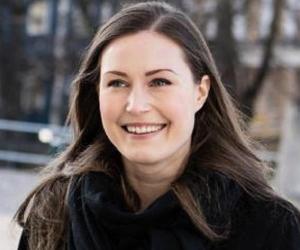
Finland’s 46th prime minister, Sanna Marin has also previously been the country’s minister of transport and communications. A Social Democratic Party member, she was dragged into a controversy after a video of her partying and dancing became viral in 2022, with critics accusing her of drug abuse.
Cyril Ramaphosa is a politician and the current president of South Africa. Also the president of South Africa's popular political party African National Congress (ANC), Ramaphosa played a key role during the nation's transition to democracy during which he served as ANC's chief negotiator. He also played a crucial role in ending apartheid and was considered Nelson Mandela's political heir.
